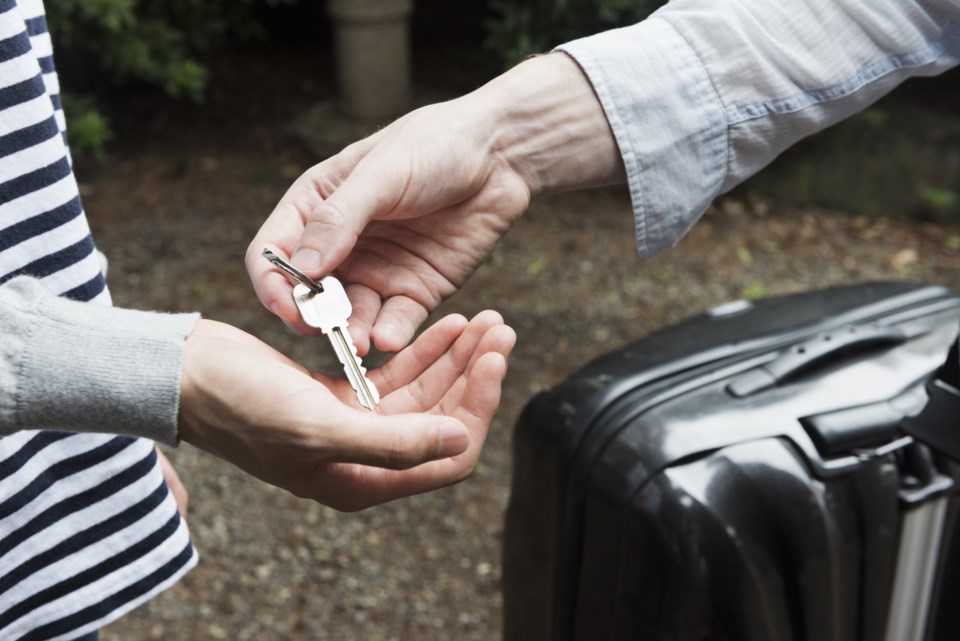Illegal short-term rentals are just one of many issues bylaw enforcement officers in Collingwood are dealing with and, with only four full-time enforcement staff, something had to give.
At a Strategic Initiatives Committee meeting on Oct. 31, the town’s Chief Building Official Greg Miller presented a report reviewing the town’s current bylaw enforcement work and proposed changes to service delivery to alleviate some of the problems the department was experiencing. The committee approved Miller’s proposed changes.
To read our story on that meeting, click here.
Council voted on Wednesday night to support the recommendation made by the committee. They also directed staff to return to council with a report speaking to issues, options, possible future directions and resource requirements regarding the issue of short-term accommodation.
“I know I constantly bring up that making the neighbours the bad guys, we’re making it very difficult, but there may be individuals out there who are really worried for themselves or afraid of their neighbour in terms of that,” said Coun. Kathy Jeffery, adding that residents have the option of pursuing complaints without their names being made public.
“Neighbours can pursue that route through us or the town in the meantime while they wait for things to get more defined,” she said.
The bylaw services division consists of four full-time equivalent enforcement officers that report to a manager, one and a half full-time equivalent student positions between the months of May and August and 14 casual and part-time school crossing guards during the school year.
The department oversees enforcement of animal services (such as animal welfare and licensing), property services (such as maintenance, noise, signage and construction) and parking services (such as patrolling illegal parking and snow removal operations).
In addition to core services, they are also responsible for the enforcement of more than 40 bylaws for the town including the school crossing guard program and Provincial Offences Act prosecutions.
According to the staff report, bylaw services received 7,346 complaints between 2014 and 2018 with a corresponding average of 1,470 complaints per year. This represents a 14 per cent increase in the number of complaints over the previous five-year period.
Projections for 2019 are approximately 1,525 complaints.
The report references the population boost to Collingwood as starting to impact operations of enforcement as it relates to matters such as parking, noise and illegal short-term accommodations.
Town bylaws are enforced primarily on a complaint basis.
In Collingwood, outside of hotels and motels, short-term accommodation is only allowed in bed-and-breakfast establishments.
“Staff are dealing with an increasing number of bylaw complaints regarding STAs. Complaints are often triggered by noise or parking concerns which later reveal that an illegal short term rental is being offered,” reads the report. “Enforcement actions around STAs are costly, time consuming and drawing staff away from regular duties.”
As of the end of August, bylaw staff have received 32 complaints related to short-term accommodation in 2019.
The new service level matrix approved by council on Wednesday night identifies three levels of enforcement.
The first level would be enforcement by patrol, where the bylaw infraction is a high priority and a risk to public safety: for example an unsafe building, a dog running at large, or a private pool not secured by a fence. A patrol-level service would deal with the matter immediately.
The second service level would be proactive, where a municipal law enforcement officer would observe the violation during his/her duties and would take steps to correct the violation. In this case, the investigation would start within one-to-three business days. Examples of the types of bylaws with this medium level priority would include excessive noise, graffiti, drainage and grading issues, and the zoning bylaw.
Finally, the lower-priority bylaws such as those dealing with parking violations (except in a fire route or accessible parking), regulatory licensing enforcement (like taxi sign damage), poop and scoop or a mobile sign, would be dealt with re-actively (complaint-based) and an investigation would be launched within one to five business days.
- with files from Erika Engel

